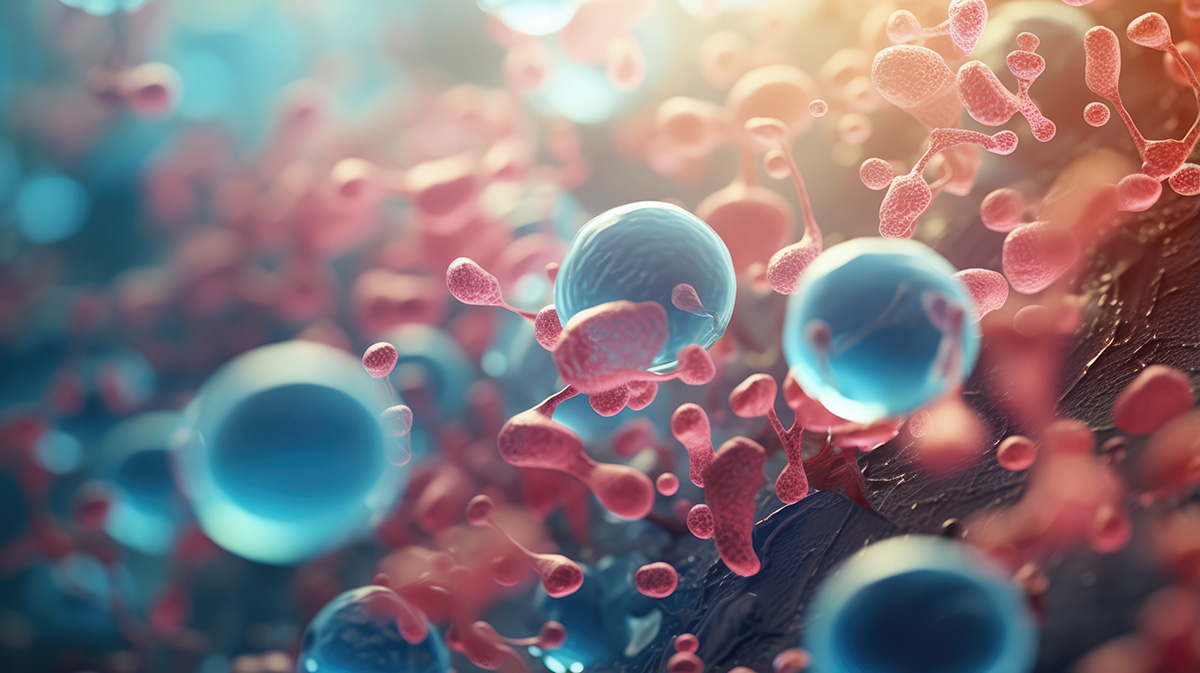GABA: the importance of bidirectional interactions between the central nervous system and the gastrointestinal tract.

Mood Health
The importance of bidirectional interactions between the central nervous system and the gastrointestinal tract.
THE GUT-BRAIN-AXIS
Feeling down or having the blues now and then is normal. And everyone feels anxious from time to time — it’s a normal response to stressful situations, but more and more people (adults and children) are experiencing discomfort associated with a mental disorder (10).
The gut has been called a “second brain” because it produces many of the same neurotransmitters as the brain does, like serotonin, dopamine, and gamma-aminobutyric acid, all of which play a key role in regulating mood(2).
Depression is a common disorder that is characterized by a persistent low mood. As a prevalent psychiatric disorder, it affects 21% of the global population(3). Most antidepressants have a certain level of toxicity and side effects(4, 5); thus, studies aiming to identify new antidepressants with good efficacy and low toxicity are critical. Some studies have shown that the gut microbiota is closely related to the onset and treatment of depression(6,7). Because natural drugs with low bioavailability unavoidably interact with the intestinal bacteria after oral administration, gut microbiota would represent a potential new strategy to study the mechanism of drug efficacy(8,9).
1 in 6 children aged 2-8 years has a mental behavioral or developmental disorder(1).
GABA, well known as the main inhibitory neurotransmitter in the mammalian central nervous system (CNS) can be synthesized by PROBIOTICS.
The genome of tht strains was sequenced in order to confirm the presence of genes involved in the two GABA biosynthetic pathways. These tht strains can synthesize GABA through two different metabolic pathways: glutamate decarboxylase (GAD) or putrescine (Puu) (more information is available on request).
- (1) (Data and Statistics on Children’s Mental Health | CDC (Center for Disease Control and Prevention)
- (2) Rahul Mittal, Luca H. Debs, Amit P. Patel, Desiree Nguyen , Kunal Patel , Gregory O’Connor; Neurotransmitters: The critical modulators regulating gut-brain axis; 2017.
- (3) Smith K. Mental health: a world of depression. Nature. 2014; 515: 181.
- (4) Lu Dy, Lu Tr, Zhu PP, Che JY. The efficacies and toxicities of antidepressant drugs in clinics, building the relationship between Chemo-Genetics and Socio-Environments. Cent Nerv Syst Agents Med Chem. 2016; 16: 12-18.
- (5) Voican CS, Corruble E, Naveau S, Perlemuter G. Antidepressant-induced liver injury: a review for clinicians. Am J Psychiat. 2014; 171: 404-15.
- (6) Schachter J, Martel J, Lin CS, Chang CJ, Wu TR, Lu CC, et al. Effects of obesity on depression: a role for inflammation and the gut microbiota. Brain Behav Immun. 2018; 69: 1-8.
- (7) Winter G, Hart RA, Charlesworth RPG, Sharpley CF. Gut microbiome and depression: what we know and what we need to know. Rev Neurosci. 2018; 29: 629-43.
- (8) Wang Y, Jiang J. A new research mode of drug PK-PD mediated by the gut microbiota: insights into the pharmacokinetics of berberine. Acta Pharmaceutica Sinica (Chinese version). 2018; 53: 659-666.
- (9) Kang DW, Adams JB, Gregory AC, Borody T, Chittick L, Fasano A, et al. Microbiota Transfer Therapy alters gut ecosystem and improves gastrointestinal and autism symptoms: an open-label study. Microbiome. 2017; 5: 10.
- (10) Tobias Esch, George B. Stefano, Gregory L. Fricchione & Herbert
